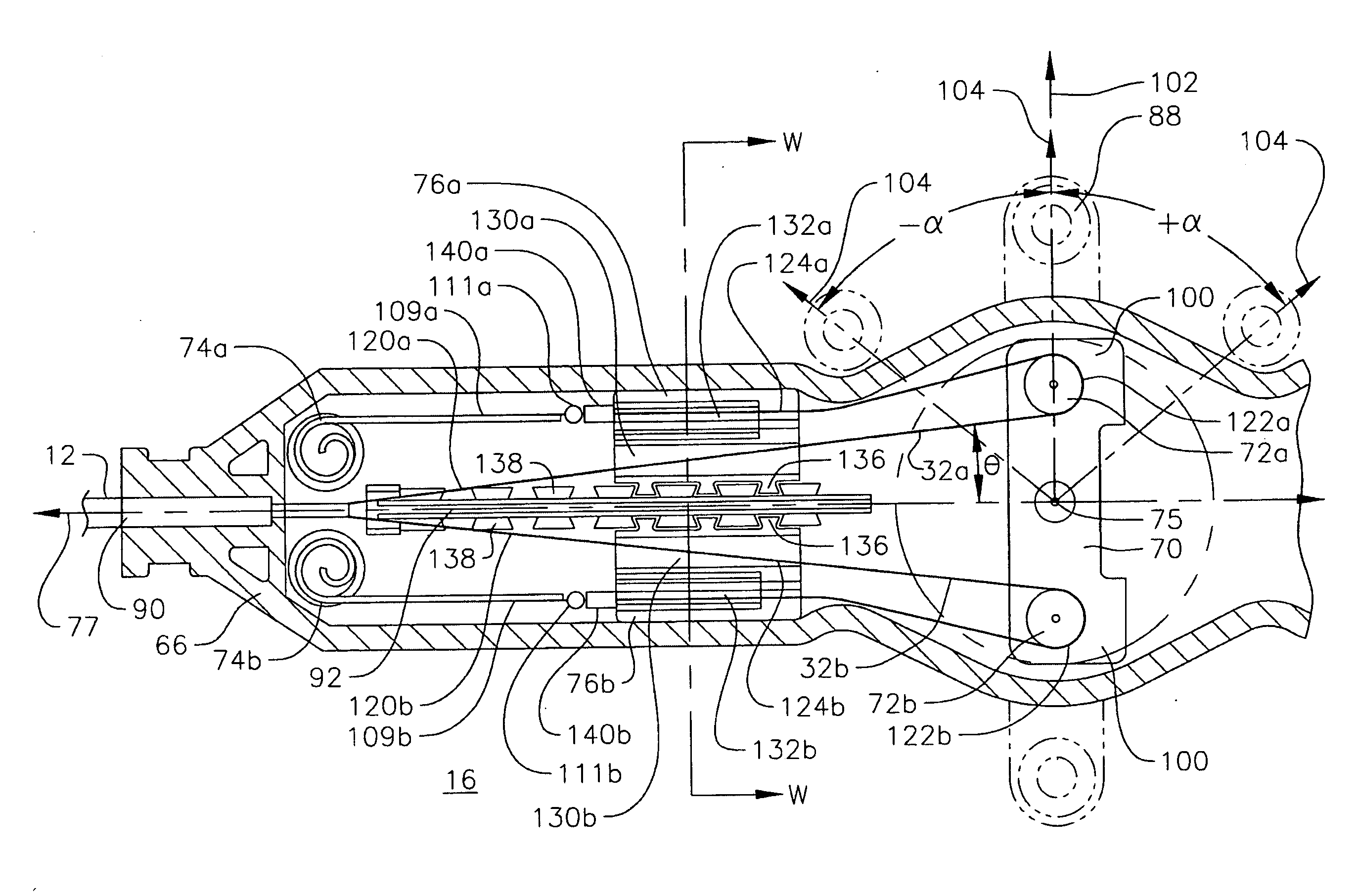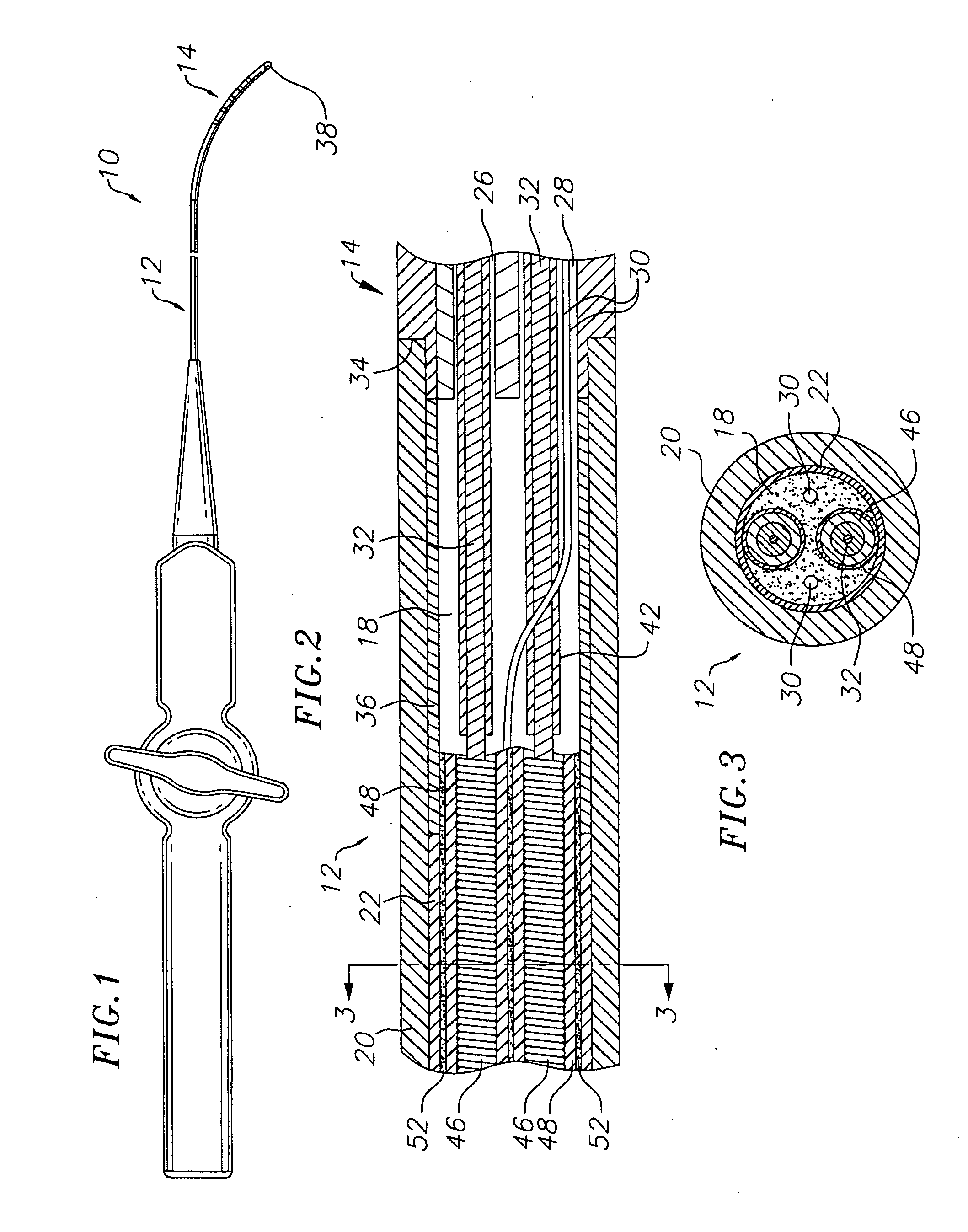Steering mechanism for bi-directional catheter
a steering mechanism and catheter technology, applied in the field of catheters, can solve the problems of increasing the longitudinal movement reducing the efficiency of the steering lever, and adding to the friction loss in the operation of the steering assembly, so as to maximize the travel distance of the puller wire. , the effect of minimizing the offset angl
- Summary
- Abstract
- Description
- Claims
- Application Information
AI Technical Summary
Benefits of technology
Problems solved by technology
Method used
Image
Examples
Embodiment Construction
[0031]In an embodiment of the invention, there is provided a steerable bidirectional electrode catheter. As shown in FIG. 1, the catheter 10 comprises an elongated catheter body 12 having proximal and distal ends, a tip section 14 at the distal end of the catheter body 12, and a control handle 16 at the proximal end of the catheter body 12.
[0032]As shown in FIGS. 2 and 3, the catheter body 12 comprises an elongated tubular construction having a single axial or central lumen 18. The catheter body 12 is flexible, i.e., bendable, but substantially non-compressible along its length. The catheter body 12 can be of any suitable construction and made of any suitable material. A presently preferred construction comprises an outer wall 20 made of polyurethane or PEBAX. The outer wall 20 preferably comprises an imbedded braided mesh of stainless steel or the like to increase torsional stiffness of the catheter body 12 so that when the control handle 16 is rotated the tip section 14 will rotat...
PUM
 Login to View More
Login to View More Abstract
Description
Claims
Application Information
 Login to View More
Login to View More - R&D
- Intellectual Property
- Life Sciences
- Materials
- Tech Scout
- Unparalleled Data Quality
- Higher Quality Content
- 60% Fewer Hallucinations
Browse by: Latest US Patents, China's latest patents, Technical Efficacy Thesaurus, Application Domain, Technology Topic, Popular Technical Reports.
© 2025 PatSnap. All rights reserved.Legal|Privacy policy|Modern Slavery Act Transparency Statement|Sitemap|About US| Contact US: help@patsnap.com



